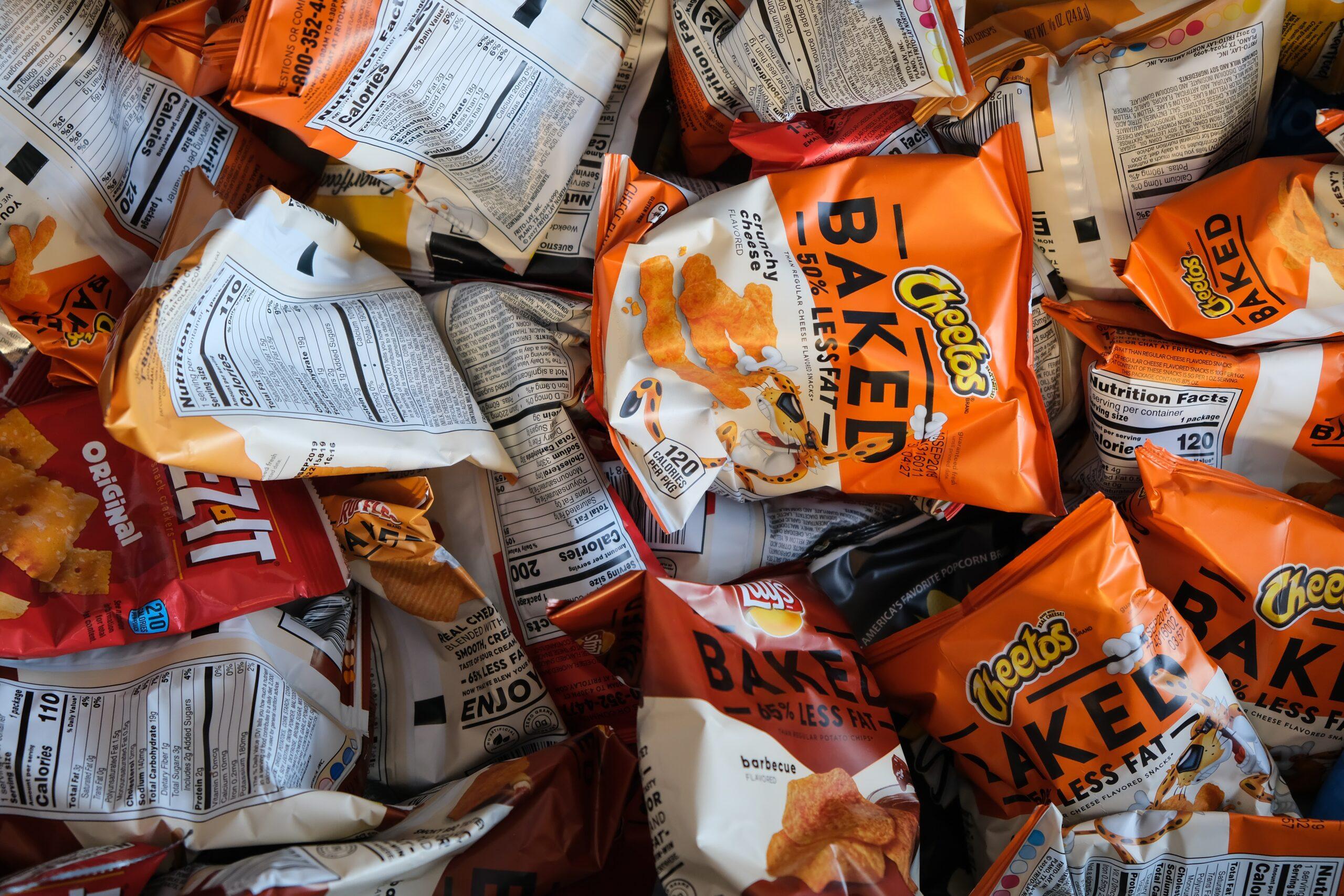The greatest gift you can give your children is an education in how to choose healthy foods that will keep them optimally nourished. Here are five golden rules to follow.
1. Be strict on sugar. When your child eats complex carbohydrates like whole grains, vegetables, beans and lentils, or simpler carbohydrates such as fruit, the body does exactly what it is designed to do. It digests these foods and gradually releases their potential energy. The nutrients the body needs for digestion and metabolism are present in these whole foods. Such foods also contain fiber, which helps to keep the digestive system running smoothly.
All forms of concentrated sugar, including white sugar, brown sugar, malt, glucose, honey and syrup, cause a rapid increase in blood-sugar levels. Fruit contains a simple sugar called fructose, which needs no digesting and can therefore enter the bloodstream quickly, like glucose or sucrose.
Fresh fruit, whether it’s fast or slow-releasing, has two big advantages. One is fiber, which slows down the release of the sugars contained in the fruit. The other is vitamins. But dried fruit can be problematic. Weight for weight, dried fruit has much less water than fresh fruit. This concentrates the sugar and makes dried fruit much smaller and less filling, meaning a person can pack away quite a lot of dried fruit— and calories and sugar— without realizing it.
Refined carbohydrates such as white bread, white rice and refined cereals have a similar effect to refined sugar, while oats are more complex, which slows down their release of sugar. When your child eats simple carbohydrates, he or she gets a rapid blood-sugar level increase, and a corresponding surge in energy. The surge is followed by a drop as the body scrambles to balance the blood-sugar level and overshoots. This drop in blood sugar manifests in your child, evident by him or her whining, complaining and having tantrums.
Seesawing blood-sugar levels can also hinder a child’s IQ. Research at the Massachusetts Institute of Technology found a massive 25 percent drop in the IQ scores of children who were in the top fifth of the population for consumption of sugar and other refined carbohydrates, compared with children who were in the bottom fifth.
2. Give daily multivitamins and minerals. Back in the 80s, we realized that giving children multivitamins increased their non-verbal IQ scores. Ten out of 13 well-designed trials have mimicked the results. While most studies suggest that the children who are the least well-nourished benefit the most from multivitamins, two recent studies, in Australia and Indonesia, found that supplemental vitamins and minerals improved learning and memory even in well-nourished children.
The earlier you start the better. A 16-year study by the Medical Research Council fed 42premature babies either a standard or an enriched milk formula containing extra protein, vitamins and minerals. At 18 months, children fed standard milk “were doing significantly less well” than the others, and kids at 8 years old had IQs up to 14 points lower than their counterparts who drank enriched milk.
Aberdeen University’s Department of Mental Health found that supplement use also correlates with higher IQ scores later in life.
3. Serve fish and/or supplement essential fats. Good fats include polyunsaturated oils from seeds, nuts and oily fish, otherwise known as omega-3 and omega-6 fats. Omega-3 and omega-6 essential fats help children stay physically healthy, reducing the risk of allergies, asthma, eczema and infections, due to their anti-inflammatory and immune supportive properties. Every single cell of the human body is held together by a thin membrane composed of fats, primarily the essential fats. Due to their physical shape, essential fats contribute to a better quality membrane that allows nutrients and oxygen to get into the cell more easily and helps carbon dioxide and other waste products to leave the cell.
Essential fats promote mental health, too. A deficiency can result in depression, dyslexia, attention deficit disorder, autism, fatigue, and memory and developmental problems.
Studies by Dr. Peter Willatts at the University of Dundee in Scotland showed that babies fed a formula enriched with a specific essential fat (DHA) had better problem-solving skills at 10 months of age than other babies. Also, supplementation of omega-3 essential fats to women while pregnant and breastfeeding has been shown to improve their children’s intellectual functioning.
I recommend you give your child oily fish three times a week and supplement a combination of omega-6 and, especially, omega-3 fats EPA and DHA. A good essential fat supplement should provide about 200mg of EPA and 100mg of DHA— 300mg in total— plus 20mg or so of omega 6. This is a reasonable level for a child up to 6 years old. And you might want to double this dosage for older children or if your child is having problems concentrating or sitting still, or if he or she won’t eat fish.
4. Watch out for allergies. As many as one in five adults and children, and probably one in three with behavioral problems, is sensitive or has allergic reactions to common foods, such as milk, wheat, yeast and eggs. Yet the knowledge that allergies to foods and chemicals can adversely affect a child’s health has been widespread, and ignored, for a long time.
Allergies can be linked to a diverse range of symptoms, including fatigue, eczema, asthma, aching joints, constipation, diarrhea, tummy aches, frequent ear infections, slowed thought processes, irritability, agitation, aggressive behavior, nervousness, anxiety, depression, ADHD, autism, hyperactivity and learning disabilities.
The most convincing evidence for the wide-ranging effects of food allergies comes from a well-conducted double-blind, placebo-controlled crossover trial by Dr. Joseph Egger and his team, which studied 76 hyperactive children to find out whether diet can contribute to behavioral disorders. The results showed that 79 percent of the children tested reacted adversely to artificial food colorings and preservatives, primarily tartrazine and benzoic acid, which produced a marked deterioration in behavior. Interestingly, not only the children’s behavior improved after their diets were modified. Most of the associated symptoms also lessened considerably, including headaches, fits, abdominal discomfort, chronic rhinitis, aches in limbs, skin rashes and mouth ulcers. Other studies have reported similar results.
While any food can cause an allergic reaction, the most common include wheat and other gluten grains, milk, eggs, yeast-containing foods, shellfish, nuts, peanuts, garlic and soya. Most food allergies are a reaction to the protein in a particular food— particularly foods that are eaten most frequently.
5. Involve kids in food. I gave my kids two options: Either help with the cooking or help with the washing up. Now in their 20s, my kids are both good cooks— and not bad at washing up either! My children would prepare their signature dishes and at dinner parties and lunches that they’d proudly serve to guests.
Be experimental with food and let your children try things in the kitchen. If you can, have children grow some food that they can later eat. Making personal connections to food helps establish good eating habits in children.
Either you or the food manufacturers are going to brainwash your children about what’s good to eat. Along the way, make every meal and snack count toward nourishing your kids. Choose fresh, whole foods every time. And always combine protein with carbohydrates for a good blood-sugar balance. Meals should be comprised of 25 percent protein-rich foods, 25 percent carbohydrate-rich foods and 50 percent non-starchy vegetables. That’s a ratio of 1:1:2.




